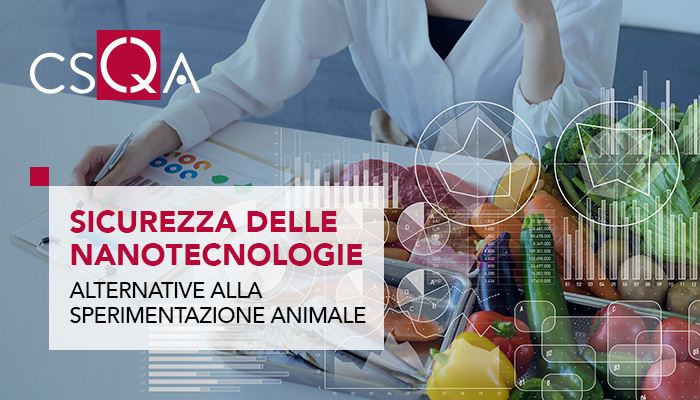
Nanotechnologies are used in various fields and find increasing application in agri-food production.
To use them safely requires a deep understanding of their interaction with the body and for this purpose a number of alternative methods to animal testing can be employed.
To advance these methods and promote their use in risk assessment, EFSA awarded €5.3 million in funding to a consortium set up at the initiative of the Istituto Superiore di Sanità (ISS), including prestigious international institutions, in response to the NAMS4NANO project.
The New Approach Methodologies ( NAM ) are the vast set of alternative methodological approaches to animal experimentation including organisms other than mammals, cell cultures, in silico models based on information technologies and omics technologies.
When properly developed, the integrated use of the different NAMs can provide scientifically valid information more quickly and efficiently than animal studies. Making progress in the use of NAMs to understand the effects of nanomaterials and associated mechanisms as an emerging problem of toxicological risk assessment in food safety is the goal of the NAMS4NANO project, which is divided into 3 lots, one of which is coordinated by the ISS. The overall funding of the Institute is equal to 1.2 million euros.
"We have proposed a qualification system to facilitate the use of NAMs in the regulatory field - says Francesco Cubadda (Department of Food Safety, Nutrition and Veterinary Public Health), ISS lead partner and coordinator of lot 3 - and 10 case studies. The first five aim to demonstrate how NAMs are able to shed light on specific aspects of materials on the nanoscale and how by integrating the data thus produced with existing evidence (animal or human studies) it is possible to conduct a risk assessment The other five have a more methodological content: they aspire to develop tools and methods to address the 'nanospecific' aspects in the various stages of risk assessment.
As requested by EFSA, the case studies focus on both nanomaterials and conventional materials with a fraction on the nanoscale, all closely related to their use in the agri-food chain .
The areas taken into consideration are the sources of nutrients present, for example, in supplements, novel foods, food additives, additives for animal feed, materials in contact with food and pesticides. The case studies will be used by EFSA to update the Authority's guidelines on the risk assessment of fully or partially nanoscale materials used in food production". (Source: https://www.alimentibevande.it/ )
To find out more, www.efsa.europa.eu/it/art36grants/article36/gpefsamese202201-nams4nano-integration-new-approach-methodologies-results